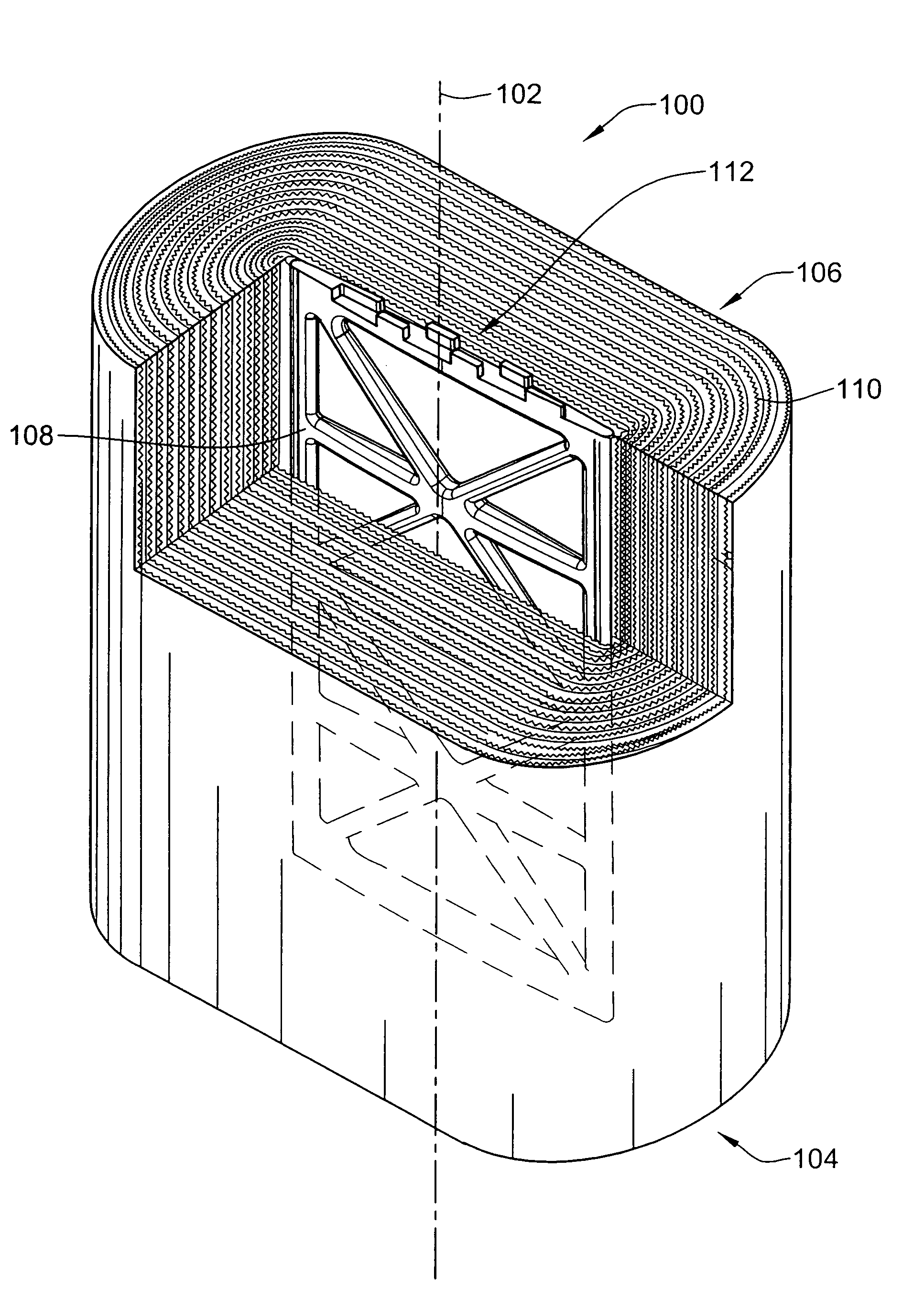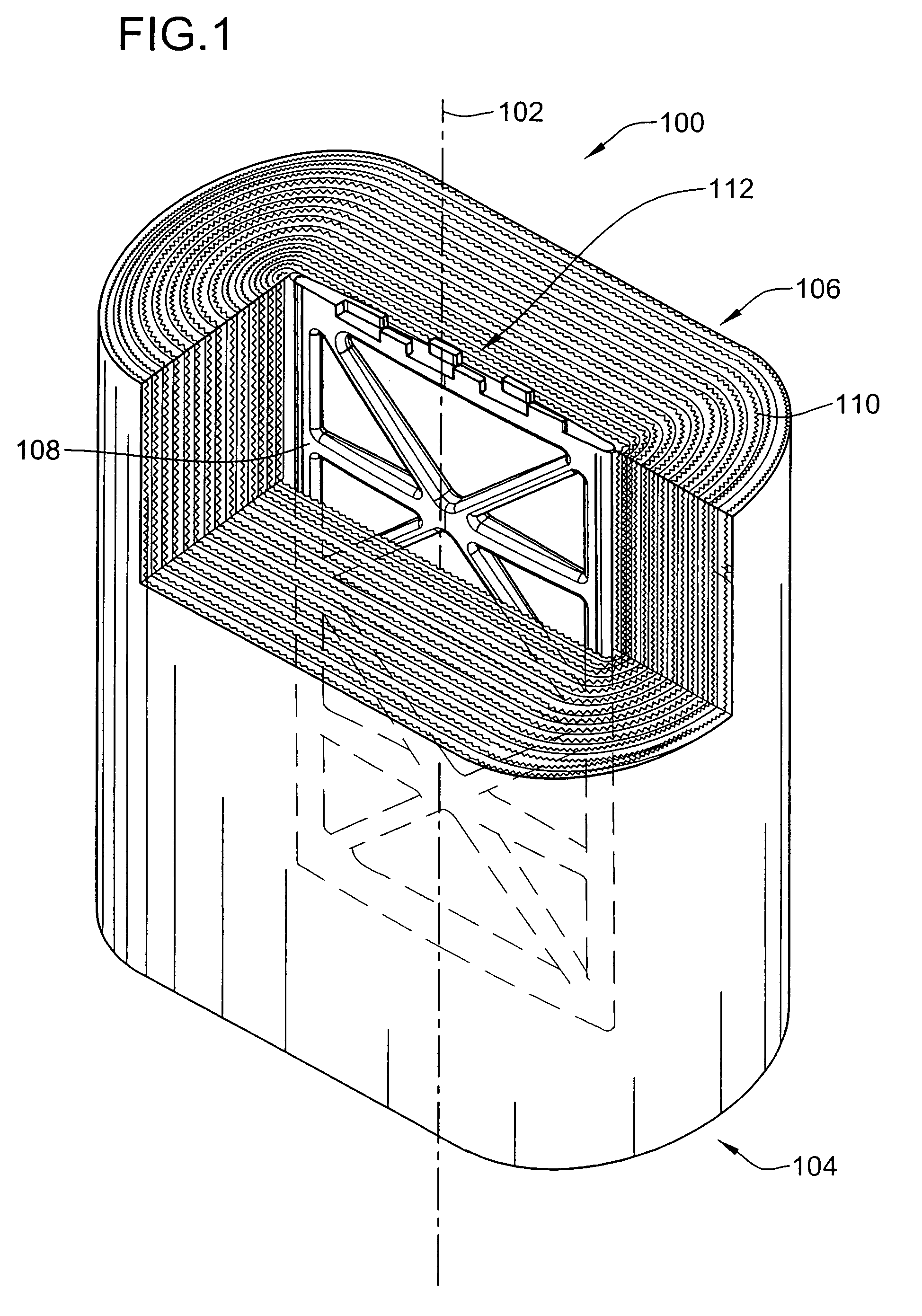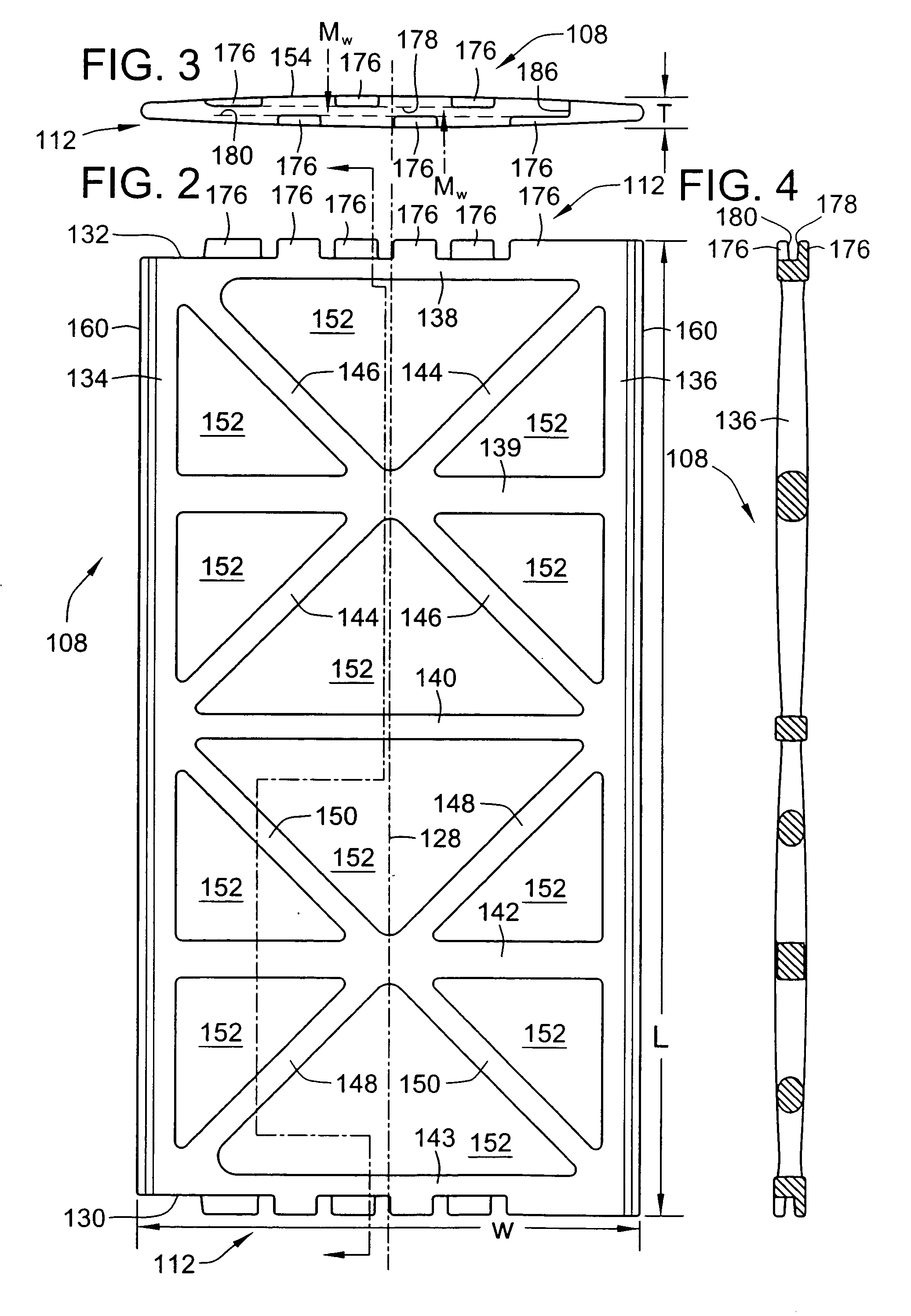Method and apparatus for winding a filter element
a filter element and winding technology, applied in the field of fluid filters, can solve the problems of increasing the tendency of the first layer of fluid media to be pushed outward from the surface of the center board, unable to achieve the desired fit between the first layer of fluid media and the outer surface, and difficult to create a secure, tight, seal between the first layer of fluid media and the center board, etc., to achieve the effect of increasing the active area of media
- Summary
- Abstract
- Description
- Claims
- Application Information
AI Technical Summary
Benefits of technology
Problems solved by technology
Method used
Image
Examples
Embodiment Construction
[0047]FIG. 1 shows a first exemplary embodiment of the invention in the form of a filter element 100 defining a longitudinal axis 102 and first and second axial ends 104, 106 of the filter element 100. The exemplary embodiment of the filter element 100 includes a winding structure, in the form of a winding frame 108, and a length of fluted filter media 110 wound about the frame 108, with the flutes of the fluted filter media being oriented substantially longitudinally to the longitudinal axis of the filter element 100, to thereby provide for filtration of a flow of fluid passing axially through the filter element 100.
[0048]As shown in FIGS. 1-7, and described in more detail below, the winding frame 108 of the exemplary embodiment 100 of the filter element is a substantially open, truss-like structure, having a smooth advantageously shaped outer periphery, allowing the media 110 to be effectively pulled into intimate contact with the outer periphery of the winding frame 100 by a wind...
PUM
| Property | Measurement | Unit |
|---|---|---|
| length | aaaaa | aaaaa |
| winding torque | aaaaa | aaaaa |
| width | aaaaa | aaaaa |
Abstract
Description
Claims
Application Information
 Login to View More
Login to View More - R&D
- Intellectual Property
- Life Sciences
- Materials
- Tech Scout
- Unparalleled Data Quality
- Higher Quality Content
- 60% Fewer Hallucinations
Browse by: Latest US Patents, China's latest patents, Technical Efficacy Thesaurus, Application Domain, Technology Topic, Popular Technical Reports.
© 2025 PatSnap. All rights reserved.Legal|Privacy policy|Modern Slavery Act Transparency Statement|Sitemap|About US| Contact US: help@patsnap.com



